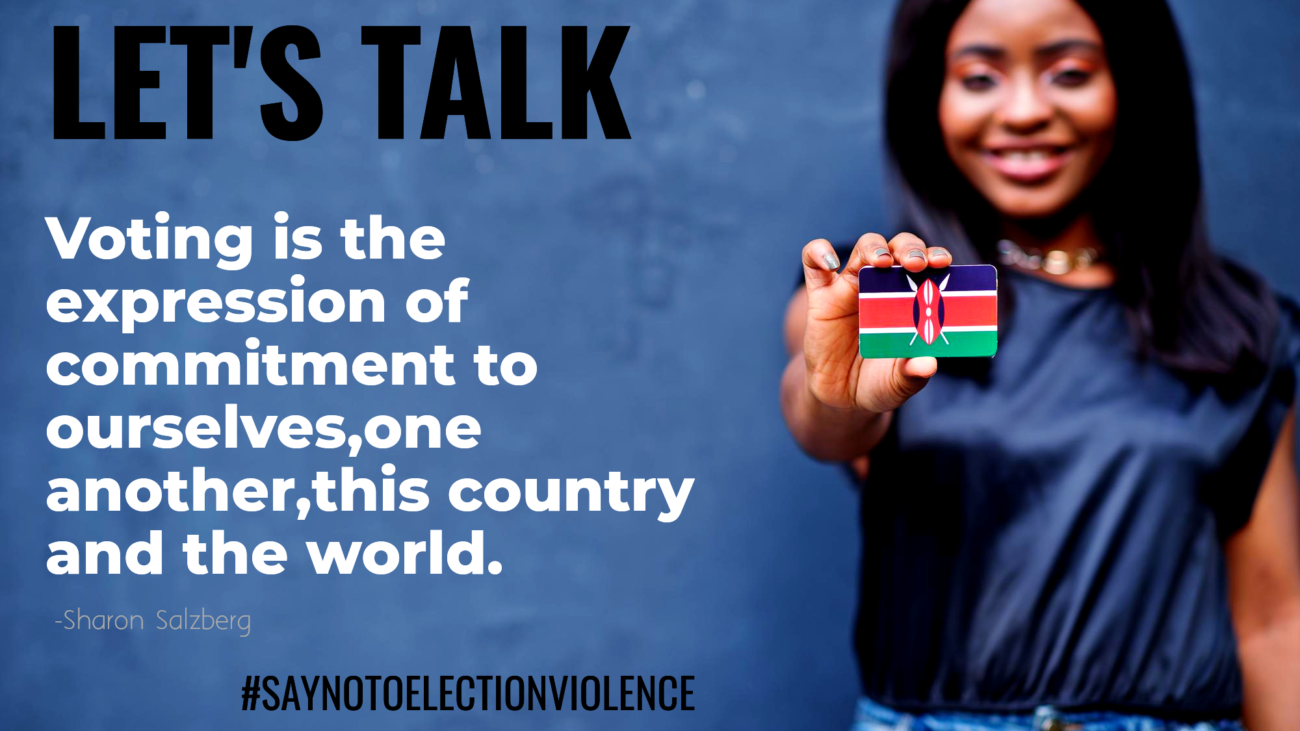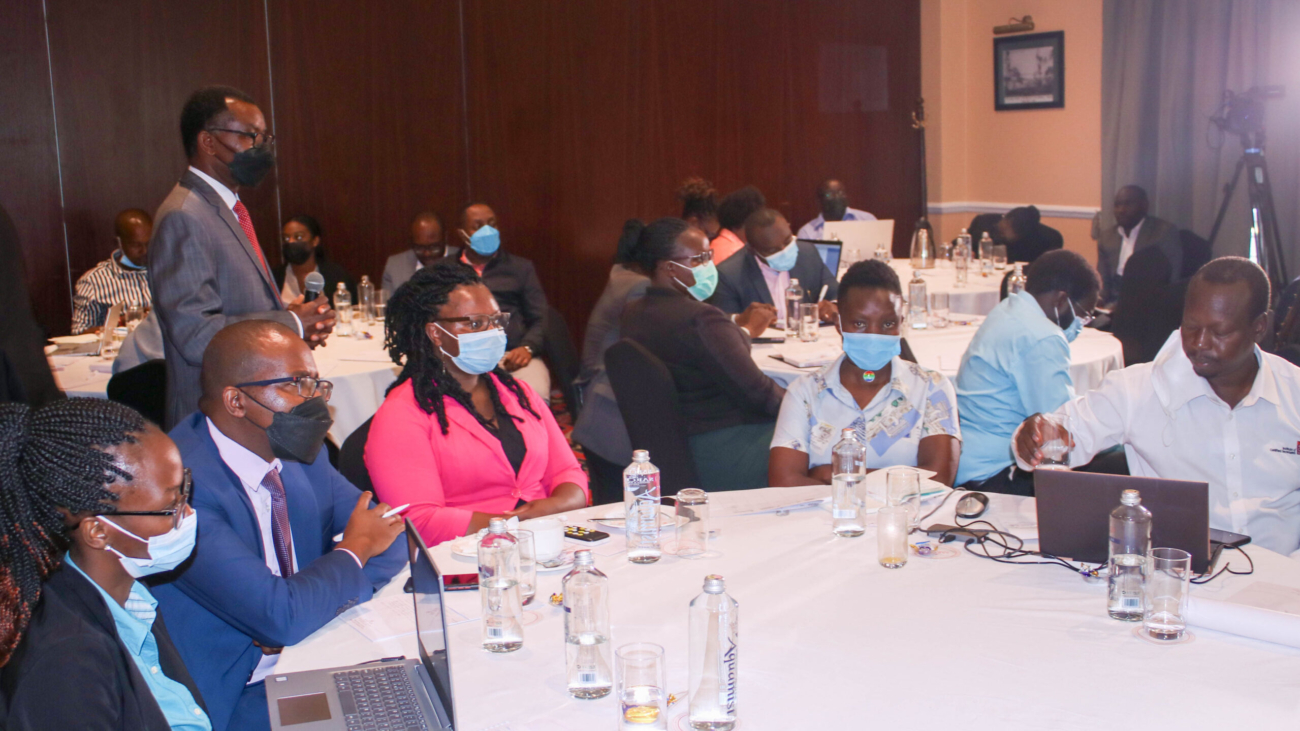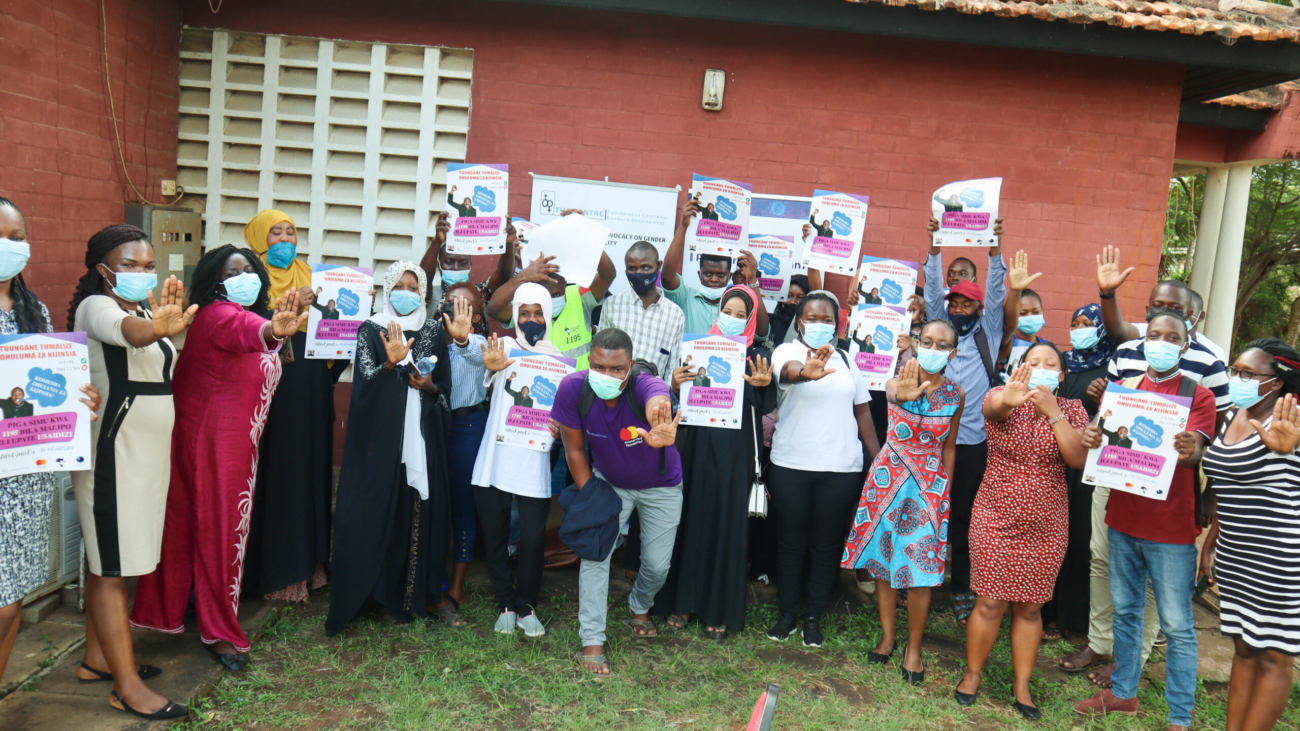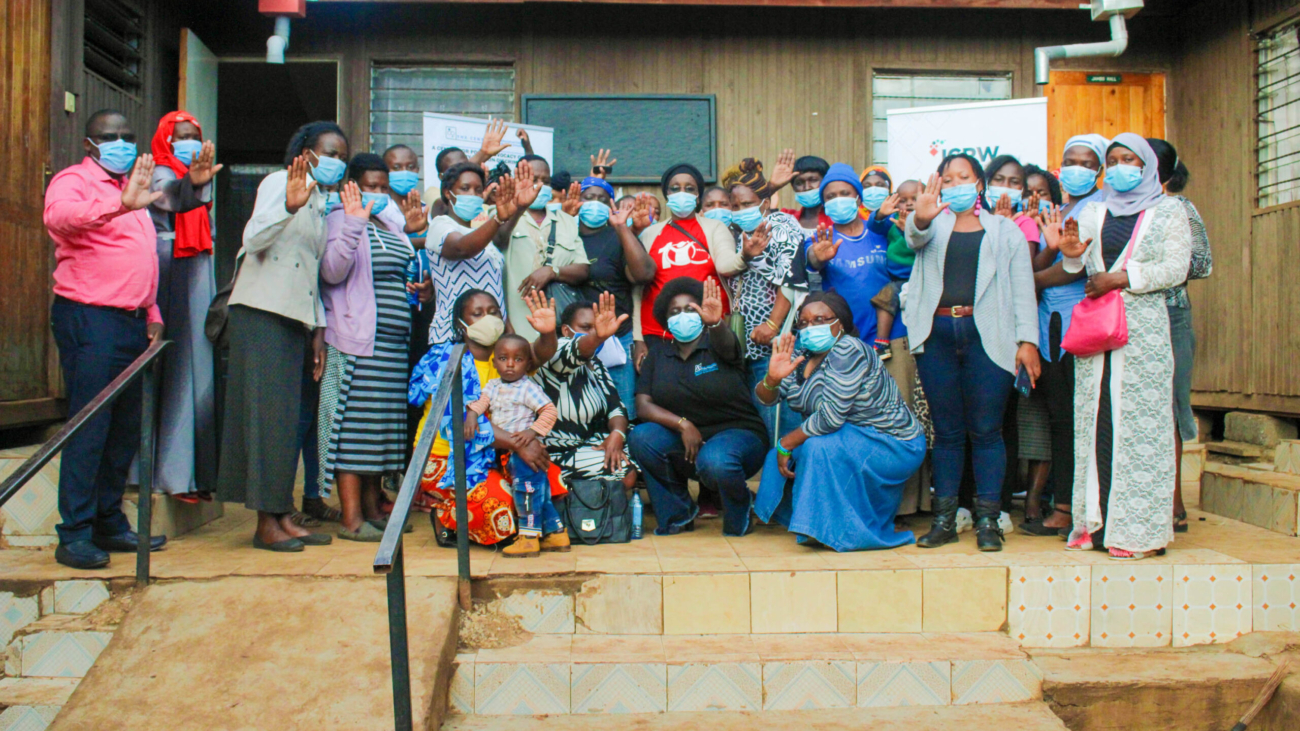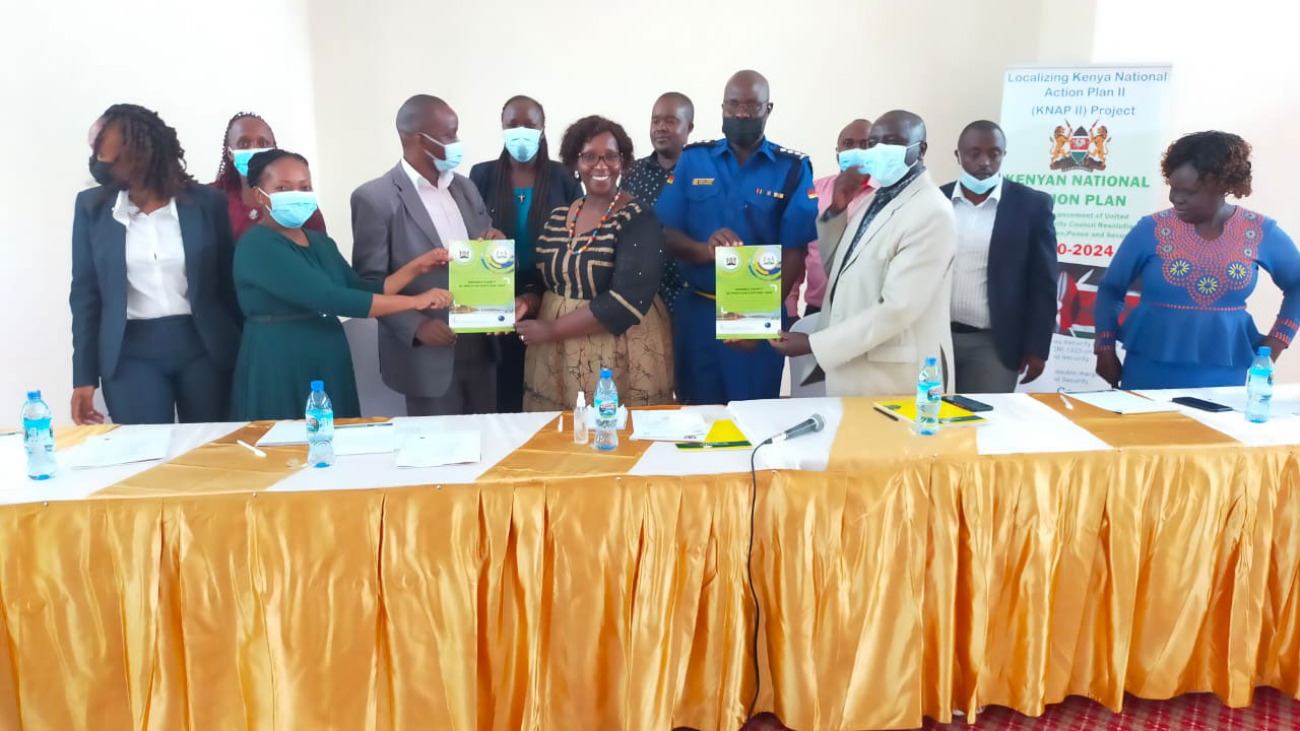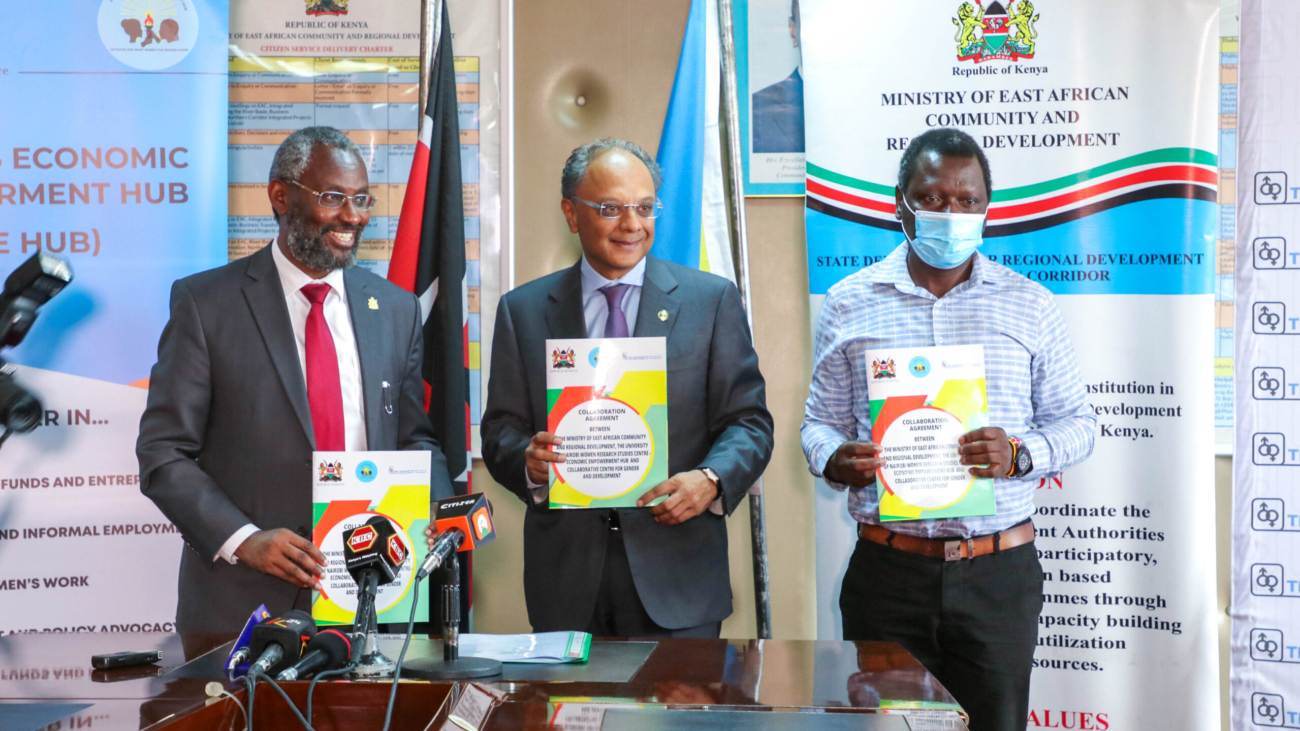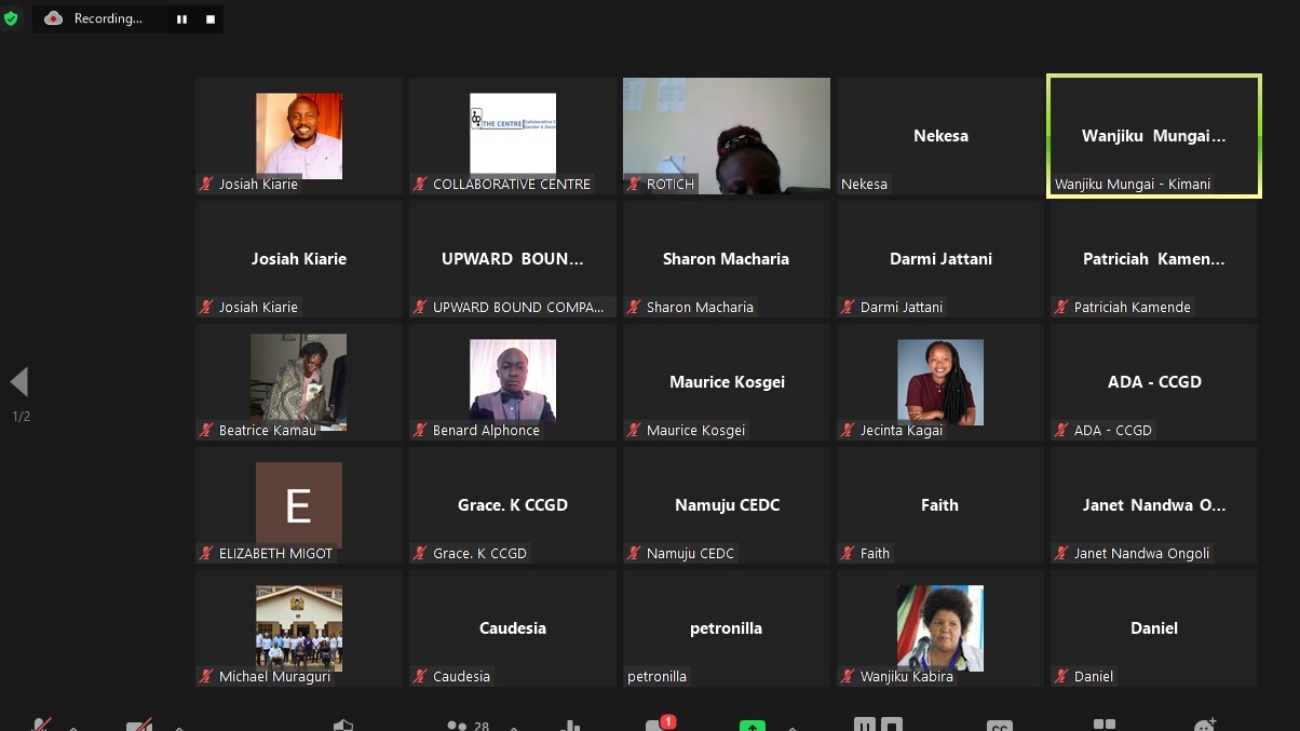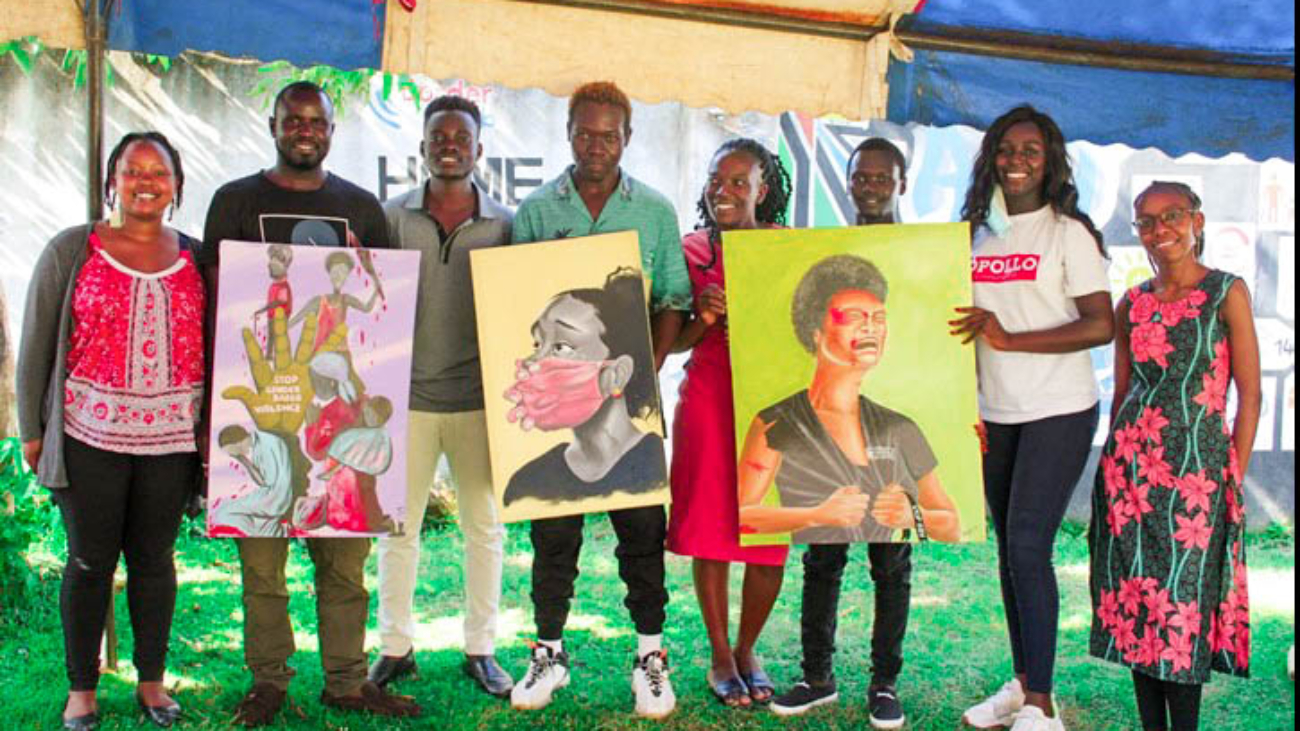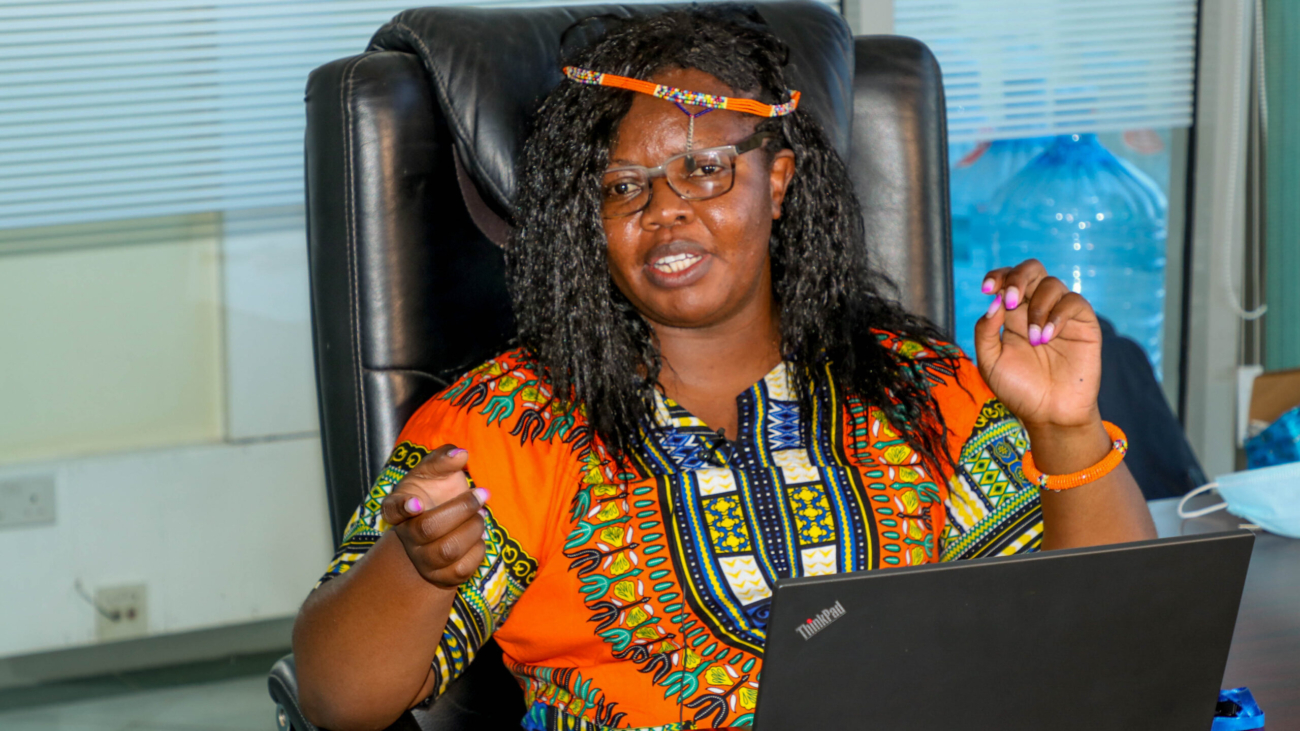With only six months to the general elections, Kenyans are still grappling with a worrying trend of voter apathy witnessed among the youth who have lost interest in matters of leadership and governance which they can influence through the ballot. The Independent Electoral and Boundaries Commission (IEBC) has failed twice to reach its target of registering 6 million new young voters due to youth apathy.
The Citizen Agenda Pillar of the Multi-Sectoral Forum on Corruption organized a webinar on Youth and Election February 17, 2022, to provide a platform for over 70 youth drawn from across the country to articulate their issues and come up with recommendations on how the challenges can be addressed to bring about positive behavioral change among the youth towards more participation in elections.
Ms. Judith Oyoo, Women President at Kiriri University and a young political aspirant in Korogocho North called for voter civic education among youth on the need to participate in the elections.
“There are more than 50,000 university students in Kenya majority of who are youth that have not registered as voters because they say they are tired of voting yet this election offers them their first chance to vote,” she said.
According to Ms. Gabrielle Lorere, founder of Samburu Well-being Initiative for All (SWIFLA) noted that youths from the northern frontier counties do not take part in elections simply because they lack national identity cards which is a key requirement for one to register as a voter.
“Youth from the northern frontier counties do not actively participate in the elections because they are subjected to numerous vetting processes that make it hard for them to obtain national identity cards which is viable for voter registration,” said Lorere
The youth cited a lack of youth inclusion in decision-making and leadership roles in governance processes, lack of cross-sectoral approaches that deepen organized youth participation, lack of role models and mentorship in political leadership, lack of resources to mount serious campaigns, inexperience in competitive politics, and lack of meritocracy in elective politics in communities like among the Somali community where members of a majority clan hold sways one’s ability to lead as some of the challenges that hinder them from actively participating in leadership and governance in Kenya.
The webinar was also attended by Mr. Suba Churchill of Civil Society Reference Group and convener of the Citizen’s Agenda Pillar and Ms. Bancy Kabutha, Director for Centre for Transformational Leadership.
The webinar was supported by CCGD/EACSOF as hosts of the Secretariat of the pillar.

